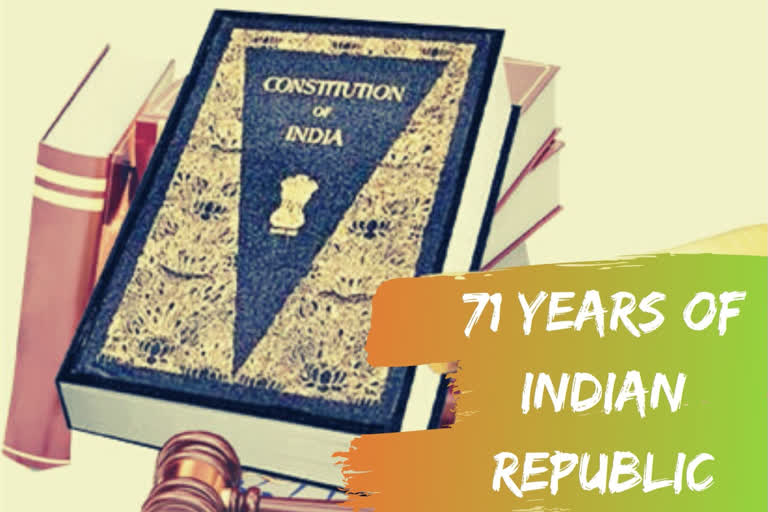New Delhi:In the 71st year of our republic, we need to assess the extent to which we have taken advantage of the proactive support our Constitution provides for women and children. The fundamental rights chapter of our Constitution provides for equality before the law and equal protection of the laws. It also prohibits discrimination only on grounds of religion, race, caste, sex, place of birth or any of them.
Then the mandate in Article 15(3) - “Nothing in this article shall prevent the State from making any special provision for women and children.” This is a clear indication that the framers of our Constitution recognized the obligation of mainstreaming women in our polity and positively accepted the importance of care and protection of children. Are we advancing their vision?
Equality for women and their rights began with a few bumps in the early years of the republic, but the passage of the Hindu Code in the mid-1950s opened a window, so to speak. The progress was slow but steady. The Maternity Benefit Act and the Dowry Prohibition Act came to be enacted in 1961. But laws alone cannot change everything in society. For example, Section 304B of the Indian Penal Code makes dowry death a heinous offence. Has this stopped the evil of dowry deaths? Data from the National Crime Records Bureau (NCRB) suggests that there is a dowry death almost every hour. Similarly, have the recent laws for the protection of women from domestic violence and the prevention, prohibition and redressal of sexual harassment of women at workplace really been effective? These laws were necessary and have been a long time in coming, and the good news is that they have come and have empowered women to assert some of their rights envisaged by the Constitution.
The Directive Principles of State Policy (DPSP) require the State to secure that all men and women have the right to an adequate means of livelihood and that there is equal pay for equal work. The Constitution also provides for reservation of seats for women (including for scheduled castes and tribes) in panchayats and municipalities. But then, we have public statements (including from the top echelons of power) suggesting that the place for women is in the home. It is common knowledge that quite a few women are actually proxies on some reserved seats. Therefore, laws alone are not enough - we need a mindset change to achieve the empowerment desired and visualized by the framers of our Constitution.
Article 25 of the Universal Declaration of Human Rights recognizes the entitlement of childhood to special care and assistance. In keeping with this entitlement, our Constitution provides that no child below the age of 14 years shall be employed to work in any factory or mine or engaged in any other hazardous employment. The DPSP requires the State to direct its policy towards securing the tender age of children is not abused and they are given opportunities and facilities to develop in a healthy manner and in conditions of freedom and dignity and that childhood and youth are protected against exploitation and against moral and material abandonment. These are lofty ideals but have we done enough to protect these rights of children?
